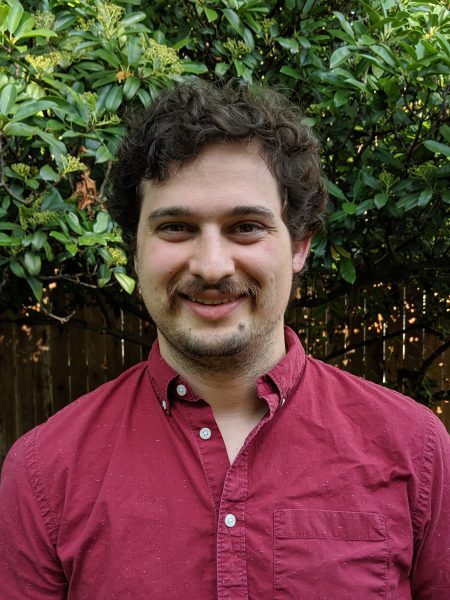Goudge Secures NASA Early Career Award
December 5, 2022

Timothy Goudge is among the five scientists selected by NASA’s Planetary Science Division to receive an Early Career Award.
The award honors up-and-coming planetary scientists and provides up to $200,000 to support research and professional development over five years. An assistant professor in the Department of Geological Sciences, Goudge plans to use the funds for a research project that combines planetary science and student outreach.
“I’m really excited about it because it’s just so different from other funding opportunities,” said Goudge. “It has core fundamental science to it, but also outreach and teaching aspects that I’m really keen on as well. It will push our group to do new things in that realm.”
Goudge studies the geological history of Mars and has been involved with prior NASA missions to the red planet, including successfully advocating for Jezero Crater as the landing spot of the Perseverance rover. He relies on remote sensing data from a variety of sources, from satellites to uncrewed aerial vehicles (UAVs), to conduct research on the geology of Mars and Earth.
His early-career project will involve testing different UAV surveying methods at field sites in Utah and on the Texas Gulf Coast, evaluating how they fare at registering different geological features — from stacks of strata to shifting sand dunes.
The work will help determine the best, most cost-effective instruments for surveying geology on other worlds — a critical part of space exploration, said Goudge.
Goudge said he selected the field sites with alien landscapes in mind. Utah’s barren rocks are like sites on Mars. And Titan, a moon of Saturn that NASA plans to visit in the 2030s, is thought to have sandy dunes similar to those along the Gulf.
Assisting Goudge on the Gulf Coast leg of the research will be students in the Jackson School’s GeoFORCE program, which teaches Texas high school students from underserved areas about the geosciences through field trips. Students will learn how to conduct field work and UAV surveys, then how to process and analyze the resulting data for studying geology.
Back to the Newsletter